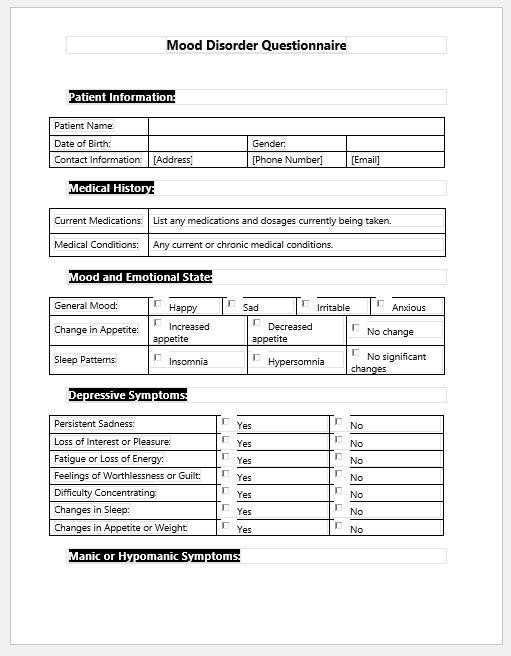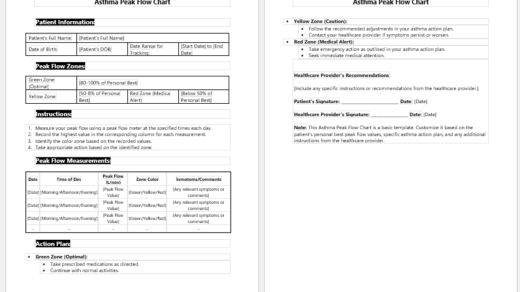Mood disorder is the altered and disturbed mood of a person over a longer period of time. There are quite a few mood disorders, and each has different characteristics from the others. Mood disorders are a problem that is constantly increasing in today’s world.
Scientists and psychologists have been working hard to know and eradicate the causes of these mood disorders to ensure better mental health and quality of life.

Questionnaire File Size: 52 KB
Some of the mood disorders identified so far are:
Depressive mood disorders
There are some depressive mood disorders, for example, major mood disorder or unipolar mood disorder, atypical mood disorder, psychotic major depression, catatonic depression, post-partum depression, premenstrual syndrome, depressive personality disorder, and many others. Depressive mood disorders cause feelings of self-hate, worthlessness, and loneliness. They affect the brain pathologically in cases of severe depression disorders and sometimes require combination therapy for treatment and future prevention.
Bipolar disorders
Bipolar disorders are mood disorders in which an affected person suffers from two extremes of mood. That is why they are also called manic-depressive disorders. The emotions of the affected person are very unstable, and he switches from a feeling of mania and euphoria to a feeling of extreme depression.
Some types of bipolar disorders are bipolar one-and-two disorders. Cyclothymic is a form of bipolar disorder in which the patient suffers from an extreme maniac feeling to an extreme depressive mood. Sub-threshold bipolar disorder is also one of the types of bipolar mood disorder.
Substance-Induced mood disorders
There are some mood disorders induced by substance abuse, like alcoholism, benzodiazepines, and other drugs. They provide a feeling of euphoria followed by depressive moods and are temporary and reversible, but of course not in extreme cases.
Other forms of mood disorders
Some neurological and metabolic diseases are also causes of depressive disorders and are highly dependent on the form of the metabolic disease. But most of the time, these diseases affect the altered consciousness of the patient more than their moods.
Mood Disorder Questionnaire
The questionnaire is used to assess and diagnose if the patient is undergoing any mood disorders and what kind of mood disorder is affecting him right now.
- After the establishment of the patient’s identity, the main questions are asked, and initially, it is very important to maintain trust and the patient-doctor relationship so that the patient answers all the questions honestly and clearly without trying to hide any information.
- Some of the questions in the questionnaire are:
- He is asked about his feelings when he hears comments made about his mental state. He is also asked if he gets irritated or annoyed and indulges in unnecessary arguments with people. The patient is asked about his self-image, his eating, sleeping, and speaking habits, and any changes in them.
- He is also given a space to write about his elaborate feelings about certain situations.
- The doctor’s remarks are sometimes needed at the end of the questionnaire, but it is his choice to keep them to himself.
- Nursing Documentation Templates
- Mental Health Evaluation Forms
- Forms Used by Pediatricians
- Various Forms Related to Pregnancy Verification
- Common Forms Used by ENT Specialists
- Pain Diary Worksheet Template
- Forms Commonly Used by Old Age Homes
- Medical Treatment Consent Form
- Home Exercise Program Worksheet
- Forms Used for Mental Health Assessment
- Forms Used by Psychologists
- Medical Forms Commonly Used by/for Students
- Assessment Consent Form
- Forms Used by an Anesthesiologist
- Not Fit to Fly Certificate Template
- Home Visit Consent Form for Schools
- Important Forms Commonly Used by Pharmacies
- Important Forms Commonly Used by Dentists

